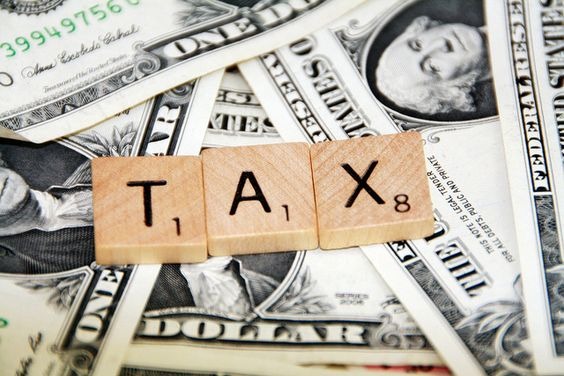
Health workers in California were expecting an increase in their minimum wage next month, but according to new reports, they will be disappointed.
This is because Democrats have decided, albeit grudgingly, to postpone the minimum wage increase for the health sector to deal with a $46.8 billion budget deficit. It highlights the state’s perpetual struggle with financial issues, but the wage increase is not off the table.
The Decision Was Made Amid Fiscal Challenges

Governor Gavin Newsom and the legislative leaders decided to postpone the minimum wage increase for health workers. The move is supposed to be part of a broader strategy to mitigate the state’s budget deficit. However, it will affect about 426,000 healthcare professionals who were looking forward to getting a raise starting next month.
There Is Hope Still

While the pivotal agreement saddens many, they still have something to look forward to, as there is a conditional plan to see healthcare workers receive their delayed raise by October 15. Of course, this depends upon state revenues being at least 3% higher than the numbers estimated from July to September. This conditional provision directly links the expected wage increase to the state’s financial health, which means that if things don’t go as planned, more disappointment will follow.
ALSO READ: “It’s Outrageous,” Gavin Newsom Blasts Republicans for Contraception Bill Failure
If Things Don’t Go As Planned

The next few months will determine the likelihood of healthcare workers receiving a minimum wage increase. If the numbers the state’s financial department has projected are not realized, the wage increase for healthcare workers will be further postponed, with the earliest time frame being January 1. The extension is yet another proof of how precarious the state’s financial planning is because it is highly dependent on volatile economic indicators.
What the Labor Unions’ Think

Dave Regan, president of SEIU-UHW, is undecided about how to feel. He is seemingly disappointed but understanding and hopeful at the same time. His mixed reaction is reflected among workers who now know July will not herald any change in their minimum wage. However, there’s a general acknowledgment of the state’s efforts to solve healthcare workforce challenges as the tough times continue to endure.
Fast-food Workers Have It Better

As things stand, the standard minimum wage in California is $16 per hour, a value many agree is remarkably higher compared to those in many other states. Unlike healthcare workers who can’t enjoy wage increases yet, fast-food workers have it better as theirs recently rose to $20 per hour. This discrepancy highlights the complexities of wage management concerning different sectors amidst the state’s budget constraints.
POLL—Do You Support a Single-Payer Healthcare System (Medicare for All)?
What the Wage Delay Means Financially

Nobody likes the delay or the idea of more postponement in the worst-case scenario. However, it is more of a crucial budgeting tactic than a temporary solution. If the wage increase for healthcare workers were to happen as scheduled next month, it would cost the state about $2 billion. However, the Newsom administration says that if it is postponed until January, the immediate fiscal impact is reduced to about $600 million.
A Silver Lining

While the possibility of the wage increase being delayed until January is daunting, there is also a chance that it won’t be postponed again. This is because recent trends in the state’s revenues, which had been in constant decline, are now showing signs of recovery. This is good news, as a positive rebound will play a crucial role in ensuring that the desired wage increase for workers in the health sector is not further postponed.
A Delicate Balance

Newsom’s administration now has a budget plan involving a massive $297.9 billion spending for the upcoming fiscal year. It was not easy to achieve that number, and Newsom, with input from the legislative leaders, had to balance cuts and reserves delicately. There were $16 billion in reductions, but they spared some essential programs from the cuts.
Key Adjustments and Compromises

Speaking of cuts and reserves, some of the adjustments they made include a $400 million loan to Pacific Gas & Electric and enhanced payments in California’s Medicaid program. The decisions highlight the broader compromises and the complex interplay of various interests within the state’s budget planning.
Tough Calls Were Made

The pivotal agreement also includes an 8% reduction across state agencies and an extra $350 million cut from the state prisons’ budget. There is also a temporary tax increase on businesses earning over $1 million scheduled to start this year, proof of the tough but necessary choices that were made to mitigate the budget deficit.
WATCH: Powell Warns US Is on an “Unsustainable Fiscal Path”
Voting Ahead

The state is now looking forward to a legislative vote on the budget, but the path ahead is filled with strategic cuts and prudent fiscal management, meaning there is no place for excesses. Senate President Pro Tempore Mike McGuire and Assembly Speaker Robert Rivas have highlighted the government’s efforts to mitigate the shortfall as much as possible while ensuring that vital public services get adequate funding.
You Might Also Like:
Rolling Stones Frontman Mick Jagger Mocks Ron DeSantis During Florida Concert
Chicago Suburb Sued for Paying Black Residents $25,000 in Reparations
Fani Willis Suffers Double Blow Amid Efforts to Prosecute Trump
Chicago Faces Chaos as Homeless Population Increases Amid Migrant Crisis
Bobby Shmurda Speaks About Why He Hasn’t Released Music in Years

